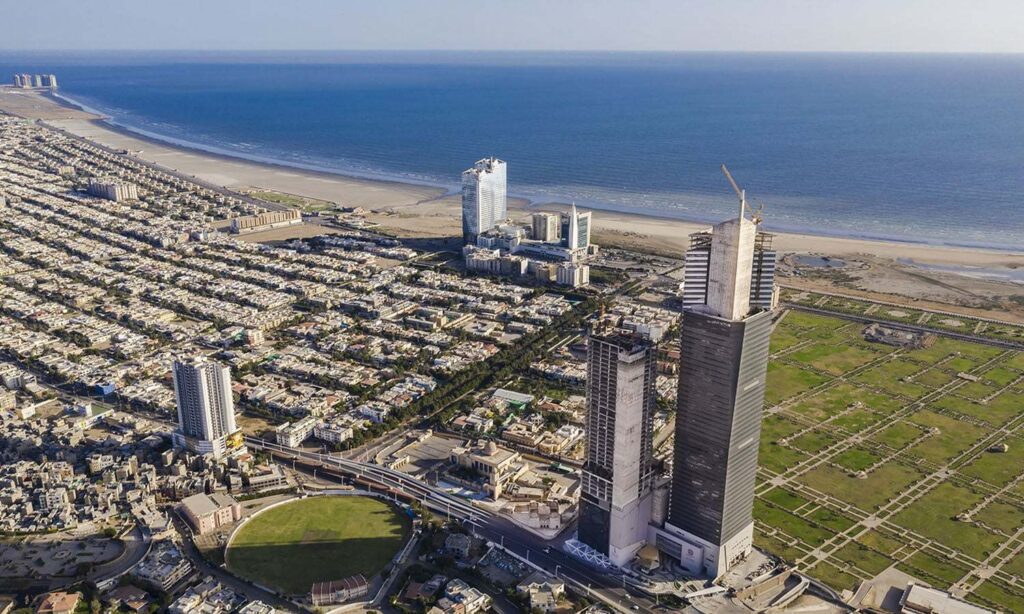
The real estate market in Pakistan has been a subject of interest for investors, buyers, and sellers alike, especially in recent years due to various economic factors, urbanization trends, and government policies. Here are some key insights and trends in the Pakistani real estate market:
Market Overview
- Urbanization: Increasing urbanization is driving demand for residential, commercial, and mixed-use developments. Major cities like Karachi, Lahore, Islamabad, and Faisalabad are seeing rapid growth due to migration from rural areas.
- Economic Factors: Economic growth, coupled with foreign investments, has positively impacted the real estate market. However, factors such as inflation, currency fluctuations, and political stability also play significant roles in market dynamics.
- Investment Opportunities: Real estate has been one of the preferred investment avenues for many Pakistanis. With rising property values in key locations, both domestic and international investors are looking at the market for potential growth.
- Affordable Housing: There is an ongoing need for affordable housing options. The government has launched initiatives, such as the Naya Pakistan Housing Program, aimed at providing low-income housing to address this demand.
- Commercial and Industrial Real Estate: While residential properties attract significant attention, commercial real estate, including office spaces and retail developments, is also expanding. The growth of e-commerce and the increasing need for logistics-related warehouses have been notable trends.
Trends and Challenges
- COVID-19 Impact: The pandemic has altered buyer preferences, with an increased focus on suburban and larger homes as remote work becomes more commonplace. There has been a noticeable shift from high-density urban living to more spacious properties in quieter areas.
- Regulatory Framework: The real estate sector in Pakistan has been influenced by regulations concerning property ownership, taxes, and development approvals. Improvements in the regulatory framework can help boost investor confidence and streamline processes.
- Technology Adoption: There’s a growing trend towards digital platforms for buying, selling, and renting properties. Online property portals and virtual tours have become essential tools for real estate transactions.
- Foreign Investment: There has been a rise in interest from overseas Pakistanis and foreign investors looking to invest in Pakistani real estate. The government has made efforts to facilitate easier property ownership for non-residents.
- Sustainability: Emerging awareness of environmental issues is leading to a demand for sustainable and eco-friendly housing solutions, although this trend is still in its infancy in Pakistan.
Conclusion
The real estate market in Pakistan presents both opportunities and challenges. As urbanization continues, economic factors evolve, and technology advances, the landscape of real estate in the country is likely to transform significantly. For stakeholders—whether buyers, sellers, or investors—staying informed about market trends, regulatory changes, and economic indicators will be crucial for making sound decisions in this dynamic environment. Engaging with local real estate experts can also provide valuable insights and guidance tailored to the specific market conditions in various regions of Pakistan.


